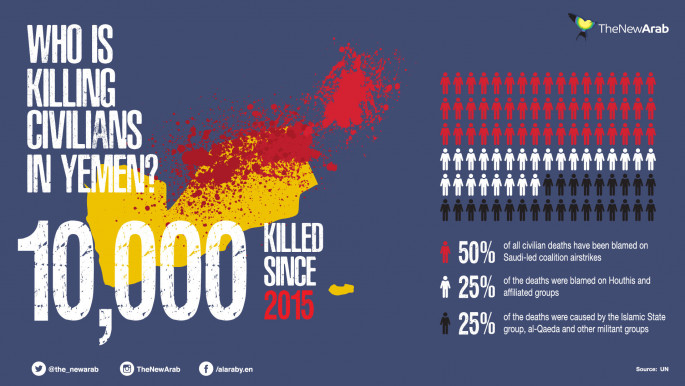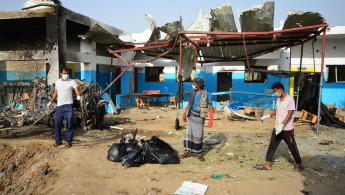Saudi bombing of Yemen hospital 'unprovoked', says MSF
MSF, also known as Doctors Without Borders, called for "urgent changes in the rules of engagement of the Saudi-led coalition... to ensure the safety of medical personnel, patients, assets and infrastructure".
The August 15 attack on Abs hospital in the rebel-held northern province of Hajja was the fifth and deadliest attack on an MSF-supported facility in war-torn Yemen, the Paris-based group said in its report on Tuesday.
The bombing - which killed 19 people and wounded 24 others - was preceded by Saudi-led coalition air raids on nearby areas, MSF said.
Aircraft from the coalition frequently target areas controlled by Iran-backed rebels as part of its campaign launched in March 2015 in support of Yemen's embattled President Abedrabbo Mansour Hadi.
A coalition plane "launched a projectile at Abs hospital without previous warning or communication with the MSF mission", the charity said.
The attack targeted a "civilian vehicle" that drove into the hospital compound nearly five minutes before the airstrike.
This was also indicated by a Saudi general who spoke to MSF in Djibouti, the charity said.
Targeting a 'civilian vehicle'
Carrying patients believed to be victims of other strikes, "the car was visually inspected at the gate" by a hospital guard who said that those inside "wore civilian clothes and that there were no weapons visible inside the vehicle".
The bomb struck hit as MSF medical staff were bringing a stretcher to unload the wounded from the car.
"The blast was very powerful. It left a big crater and was felt throughout the hospital, where windows were shattered despite the blast film applied on them," it said.
"Thirteen of the deaths were due to severe shrapnel injuries, two people burned to death inside the car, one of which was a child, and partial remains were found of the remaining four casualties," MSF said.
The hospital remained empty for 11 days after the blast before it gradually resumed operations from August 26.
The attack prompted MSF to evacuate its teams from six hospitals in northern Yemen, including Abs – a move that it said has "negatively impacted the availability and quality of healthcare" in the war-battered country.
"MSF had taken every possible measure to safeguard the normal medical functioning and the neutrality of the facility," it said.
Positive steps?
According to MSF, the hospital was identified with logos and through the communication of GPS coordinates.
It was functioning normally prior to the attack and the investigation found there had been no changes to trigger the strike while a "strict no-weapons policy was being applied".
"Thus, carrying out the attack on the hospital without any legitimate cause and without previous warning was a violation of the International Humanitarian Law rules," MSF said.
It acknowledged, however, that the coalition had taken "concrete and positive steps including a prompt investigation, an invitation to discuss the findings and a commitment to concrete changes."
The Saudi coalition immediately announced an independent investigation into the attack but has not yet published its findings.
Last month, the coalition acknowledged "shortcomings" in two out of eight cases in which it had investigated its own airstrikes on civilian targets in Yemen.
More than 6,600 people have been killed since the coalition launched its intervention in March 2015, most of them civilians, according to the United Nations.





 Follow the Middle East's top stories in English at The New Arab on Google News
Follow the Middle East's top stories in English at The New Arab on Google News
![Israeli forces ordered bombed Gaza's Jabalia, ordering residents to leave [Getty]](/sites/default/files/styles/image_330x185/public/2176418030.jpeg?h=a5f2f23a&itok=_YGZaP1z)

